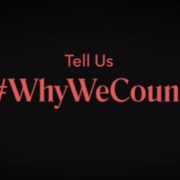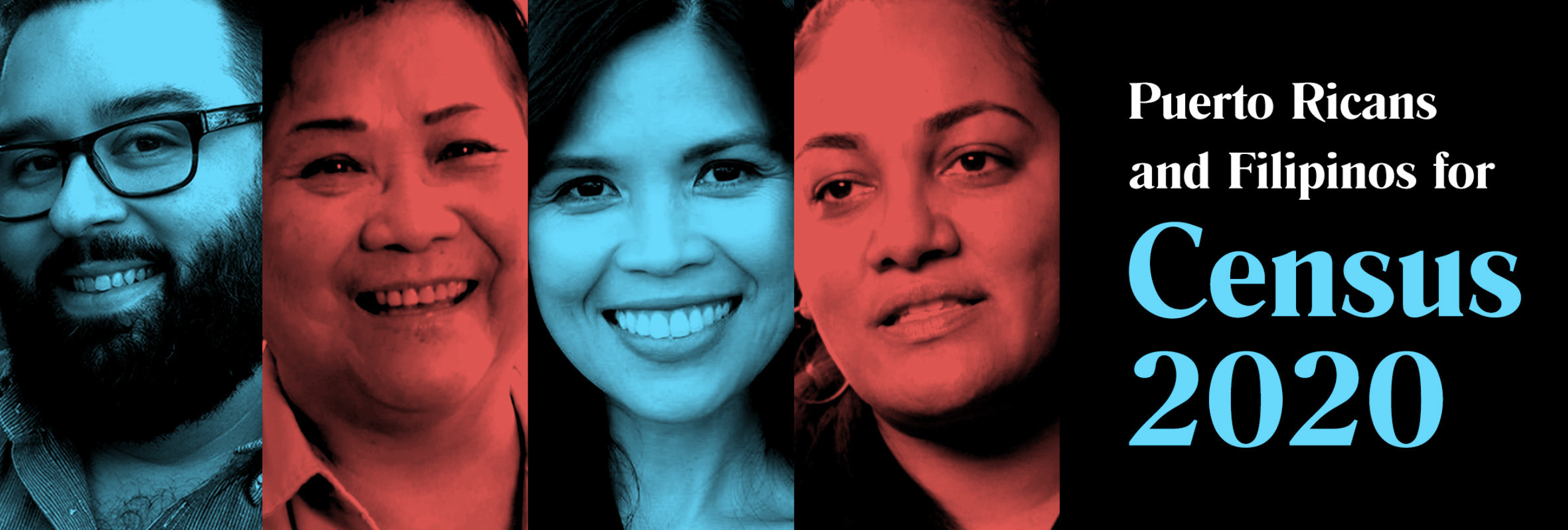For the first time, community organizations in New York and Florida are coming together to get an accurate count of many Puerto Ricans and Filipinos there are, come Census Day on April 1, 2020.
Historically, Puerto Ricans and Filipinos have been undercounted in past census efforts. This has adversely affected how $1.5 trillion in federal funding has been spent, according to a new study from the GW Institute of Public Policy.
In New York and Florida, there are still hundreds of families living in temporary housing since Hurricane Maria. Many undocumented and documented Filipino immigrants need healthcare services and clinics for their aging Titos and Titas. And in low-response areas, including the Bronx, parents and grandparents want public school funding to reach their communities for the benefit of the next generation.
Census Day is less than three months away. A sense of urgency abounds.
To mobilize these communities, NextDayBetter has launched #WhyWeCount, a storytelling initiative to make their needs visible and combat disinformation about the 2020 Census with households who are unfamiliar with how census works and may be vulnerable to fake news online and targeted mailers.
“We need to empower our communities to share stories of #WhyWeCount online and offline. Our personal stories can educate others on how census participation can shape our communities for the next 10 years,” said NextDayBetter CEO Ryan Letada.
The campaign launches as a pilot in New York, Florida, and California with plans to expand this year. NextDayBetter has helped build a coalition of community-based organizations (CBOs) that serve diaspora communities such as the New York Disaster Interfaith Services (NYDIS), Pilipino Workers Center, Damayan Migrant Workers Association, Filipino Young Leaders Program (FYLPro), the Lower East Side Girls Club; and faith-based leaders that formed Collective Action for Puerto Rico including Middle Collegiate Church, Fort Washington Collegiate Church, and Union Seminary.
“Since Hurricane Maria and the summer of protests against the Puerto Rico governor, the diaspora has stepped up in solidarity, with millions joining in peaceful demonstrations. Filipino Complete Count Commissions have also been formed by advocacy groups in states like California, emphasizing the need for collective action across diaspora communities,” said Jorge Fontanez, Head of Partnerships at NextDayBetter.
#WhyWeCount offers free diaspora-relevant toolkits, educational story assets, and training to empower CBOs to engage hard-to-count populations. Qualified organizations are encouraged to learn more and request the toolkit at www.whywecount.org.
Organizations do not need to have 501c3 status to participate.
“Small, local community organizations often lack the resources that are culturally relevant when working on advocacy issues. The #WhyWeCount campaign gives us turnkey resources and templates that allow us to easily educate our community and get them engaged in the 2020 Census,” said Ian Jerome Kamus at the Pilipino Workers Center, a Southern California nonprofit that works with domestic workers.
Representing Collective Action for Puerto Rico, Rev. Dr. Damaris Whittaker of Fort Washington Collegiate Church, Vice President of the Collegiate Churches of New York, inspires her diverse congregation and local community in Washington Heights to participate in the 2020 Census.
“When you make yourself be counted, we are saying we are more and we are not afraid. This is how you turn a nation. When you see yourself differently, the contributions immigrants and communities of color make in this country will be viewed differently as well,” said Rev. Whittaker. Like many churches, libraries, and other community spaces across New York City, Fort Washington Collegiate Church is offering its church as a technical assistance center.
#WhyWeCount campaign was recently selected as one of 15 projects “Innovating the 2020 Census” at the annual day demo of The Opportunity Project (TOP), a federal initiative of the U.S. Census Bureau. NextDayBetter demonstrated how, using open data, their culturally-competent digital storytelling campaign can overcome participation barriers and raise awareness about the importance of the 2020 Census to Puerto Rican and Filipino households.







